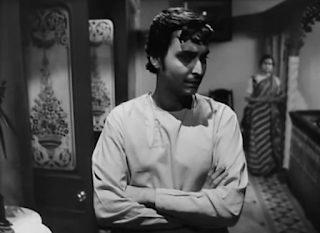In a way, I honestly believe that these comments have more to do with where Shahrukh Khan is at, than where Indian film is at right now. His films as of late have been successes, but they haven't been the kind of successes he probably hoped they'd be, and they certainly haven't punched through as films people would love to re-visit time and time again. His name brings people to the theater, but hardly anybody is going back for a second viewing, much less a third.
But, as more people flock to cinemas, Hollywood’s finesse will eventually win them over. India may make the most movies in the world, but “With all due respect, the production values are s***. Why will my kids watch that kind of crap when Hollywood offers something slicker?”As far as arguments go, this is not precisely the strongest. Anecdotal evidence based on your kids? Look, dude, I get it. You're a self-made guy who made their career and fortunes through Hindi films, and now you see that your kids are growing up in a different world than you, so they'll prefer different things - and this is a new discovery for you, perhaps. But you just cannot extrapolate all that to include every child in India, every adult in India or every Indian abroad.
Here's what I've learned about Indian audiences and their love for Hollywood films - people like spectacle. People everywhere like spectacle. Finnish people will go see Avatar in huge numbers, as will Americans, as will Brits, Germans, Koreans and people all over the world. Spectacle is one of those things that no other format than film can provide quite like film, so of course flashy, big budget entertainers will draw in people, just for the novelty of it all.
Like GetFilmy pointed out, Bollywood is not suffering. Content is becoming better, genres are getting more diverse, we get tons of films breaking the 100 crore mark, which used to be a fanciful dream for producers, we have new stars and old stars having the kind of success they've never enjoyed before.
Even more importantly, films aren't just entertainment - entertainment forms a part of people's lived experience, and through that, shapes identities and in some ways, a national and cultural identity. This is why DDLJ spoke to NRI's, and people still listen to HAHK songs, or quote Sholay, or whatever have you. And because Indian films are intrinsically Indian, they will never cease to have that sort of significance in some people's lives. This is not to say that if you are an Indian person who prefers American or French or Iranian films to those of your own country, you're somehow less Indian - that's not what I mean at all (after all, I'm not less Finnish for not liking Finnish films much). It's just that to some people, this part of the culture is very important.
A bad Hindi film might not entertain anybody better just because they have a cultural connection to it, but I don't think people who are as passionate about their own films as Indian audiences can be will ever just abandon it because the visual special effects aren't as flashy as something Peter Jackson or Christopher Nolan can conjure up. That's pretty simplistic thinking on Shahrukh's part. Production value is not the only thing people go see in films - it's certainly what some people look for, perhaps even to the detriment of their own enjoyment of less flashy films (be it indie, arthouse, low budget).
They spend more on pop corn, samosas and fizzy drinks than on the tickets.Newsflash - this has been the case in the West forever. Even before the advent of illegal digital downloads and all the things driving up ticket prices in North America and Europe. This also seems to mostly look at multiplexes. People see films in other sorts of film theatres as well, don't they?
I'm not a businesswoman, so I'm not one to criticize Shahrukh's moves in the business world - it's his company, he can run it as he likes. But I also think it's shortsighted of him to just think about visual effects, flashy spectacles and all this other stuff that Hollywood will probably make better than Hindi films do, most of the time, simply because of the fact that Hollywood has been doing this stuff for aeons. Indian films should push themselves technically, for sure, and I'm all for that - Eega was a good example. But no film would be anything without actually being good - good acting, good music, good stories. To say Hollywood is going to take over is based on almost no evidence at all - in fact, Hollywood is itself in crisis because its age-old business formula is losing in the world of online streaming and targeted marketing. Bollywood is going through changes as well, but it's not failing.
I don't mean to harp on the man's personal career graph too much, but I do strongly feel that had his latest film been his Dabangg or Three Idiots, he wouldn't be saying stuff like this. Come back to us, Shahrukh - make a damn good movie that rides on both the content (a good story, solid direction, great songs) and your star power. Jab Tak Hai Jaan probably should've been just that, but wasn't. Nevermind.
Come back to us.






















